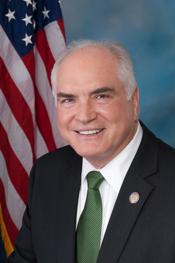H.R. 2369: Personal Health Investment Today Act of 2025
The bill known as the Personal Health Investment Today Act of 2025 (PHIT Act of 2025) aims to promote health and well-being by allowing certain expenses related to physical activity, fitness, and exercise to be treated as medical care for tax purposes. Here’s a breakdown of its main components:
Purpose
The primary goals of this Act include:
- Encouraging healthier lifestyles.
- Providing financial incentives to reduce the costs associated with engaging in healthy behaviors.
- Increasing access for individuals and families to participate in physical fitness activities.
Tax Treatment of Fitness Expenses
The bill proposes changes to the Internal Revenue Code, specifically section 213, which governs medical expenses. It suggests that certain amounts paid for physical activity and fitness are qualified as medical expenses. Here are the key details:
Definition of Qualified Sports and Fitness Expenses
Qualified sports and fitness expenses encompass amounts paid exclusively for:
- Membership at a fitness facility.
- Participation in or instruction for physical exercise or activities.
- Equipment used for physical exercise or activities.
Annual Limit on Expenses
For tax purposes, the total amount that can be treated as qualified sports and fitness expenses is capped at:
- $1,000 for individual taxpayers.
- $2,000 for joint returns or head of household filings.
Criteria for Fitness Facilities
A fitness facility is defined as one that:
- Offers physical exercise programs or facilities.
- Is not a private club operated by its members.
- Does not focus on activities like golf or sailing.
- Has a primary purpose of promoting fitness and is compliant with state and federal anti-discrimination laws.
Treatment of Exercise Materials
Videos, books, and similar materials aimed at providing instruction on physical exercise or activity are also considered qualified expenses under this bill.
Equipment Limitations
Amounts paid for exercise or fitness equipment are considered qualified sports and fitness expenses only if:
- Used exclusively for physical activities.
- Apparel or footwear is necessary for specific physical activities.
- The individual cost of any single item of non-exercise sports equipment does not exceed $250.
Effective Date
The provisions of this Act would apply to taxable years commencing after the bill is enacted.
Relevant Companies
- NKE (Nike, Inc.): As a major athletic apparel and equipment manufacturer, Nike could see increased sales if more consumers utilize their products under the new tax treatment.
- PLNT (Planet Fitness, Inc.): As a fitness facility, Planet Fitness could benefit from increased memberships and attendance if potential customers view fitness expenses as tax-deductible.
- EXPE (Expedia Group, Inc.): If fitness programs that include travel are utilized, companies like Expedia may see an increase in bookings for fitness retreats or wellness travel.
This is an AI-generated summary of the bill text. There may be mistakes.
Sponsors
5 bill sponsors
Actions
2 actions
| Date | Action |
|---|---|
| Mar. 26, 2025 | Introduced in House |
| Mar. 26, 2025 | Referred to the House Committee on Ways and Means. |
Corporate Lobbying
0 companies lobbying
None found.
* Note that there can be significant delays in lobbying disclosures, and our data may be incomplete.


















